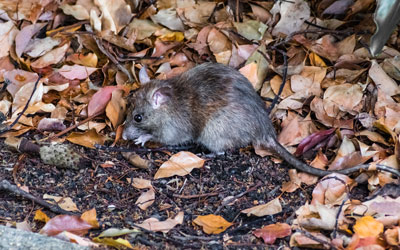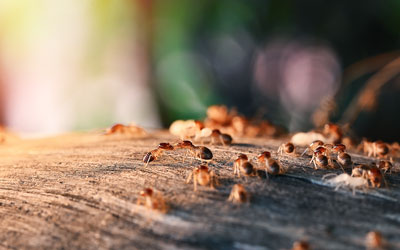
Why Are Rodents More Aggressive During the Pandemic?
The shelter in place shutdowns caused an uptick in residential rodent sightings as rats and mice became bolder in their hunt for resources. This has since caused an uptick in infestations and rodent-spread issues. While their presence may be more prevalent than ever, you thankfully do not need to worry about rodents transmitting COVID-19 to you or your family.
That said, rodents still can spread other diseases including hantavirus, salmonellosis, and many more. They also can cause significant damage to your home. Because rodents are competing for more food sources, they have been a tad more aggressive as of late. This can lead to more dangerous infestations in your home, making it crucial to learn how to prevent them.
Prevent Rodent Problems In Your Home
To avoid a rodent infestation, try out our top tips for preventing them:
- Seal off cracks and crevices around openings. Mice can squeeze inside holes the size of a dime.
- Clean up pet food and bird seed debris, and store pet food in robust containers with fitted lids, preferably above ground level.
- Securely store all food in metal or glass containers with tight-fitting lids.
- Clean inside the house and around the garden. Less clutter means fewer places to hide.
- Put outdoor garbage bags in metal garbage cans with securely fitted lids to stop them from feeding on contents.
- If you have a compost heap don’t include organic food waste, as this will attract them.
- Inspect your garage, attic, crawlspaces, and vents for potential rodent hiding spots.
Rodent Awareness Week 2020
Rodent Awareness Week may just be a week out of the year, but Western strives to educate our customers about the dangers of rodents all year long. With infestations on the rise, now is the time to protect your home. Our rodent exterminators can help. Contact us today to learn more!
 Some pests are known to overwinter or go dormant in the fall and winter to wait out the colder months of the year. Unfortunately, this isn’t the case for termites, which are active all year round. Termites are often seen in the spring and summer when they swarm, but they are very much still around in the other seasons. Queen termites lay their eggs throughout the year, making it easy for a colony to continually grow. Because termites are a year-round threat, it’s crucial to get year-round protection. At Western Exterminator, formerly Pratt Pest, we can help ensure you are protected against termites all year long.
Some pests are known to overwinter or go dormant in the fall and winter to wait out the colder months of the year. Unfortunately, this isn’t the case for termites, which are active all year round. Termites are often seen in the spring and summer when they swarm, but they are very much still around in the other seasons. Queen termites lay their eggs throughout the year, making it easy for a colony to continually grow. Because termites are a year-round threat, it’s crucial to get year-round protection. At Western Exterminator, formerly Pratt Pest, we can help ensure you are protected against termites all year long.